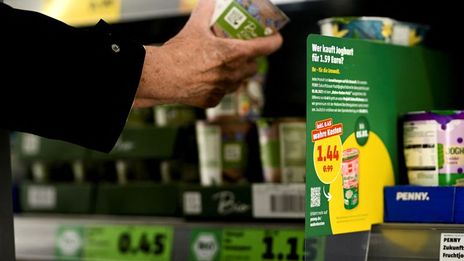Leeo, Inc., a Silicon Valley company that creates smart home products and services that are simple to use and accessible to everyone, today released the findings of a survey on how well people in the U.S. know their neighbors. Leeo’s first “State of the Neighborhood Report” found that while most respondents characterize their neighboring style as similar to the Cleavers of Leave it to Beaver fame, they’re not even close.
According to the results, fewer than half of people in the U.S. know their neighbors well and one in eight people don’t know their next door neighbors’ first or last names. Although many Americans don’t know their neighbors, the survey revealed that more than half of them feel that they can rely on the people in their neighborhoods in times of emergency. Leeo aims to make communities safer by encouraging people to build meaningful relationships with their neighbors.
Last year, Leeo launched the Smart Alert Nightlight™, a plug and play device that listens to the existing smoke and carbon monoxide (CO) alarms in the home, recognizes when an alarm sounds and sends the owners, wherever they are, a notification on their smart phone. The Leeo app allows the user to listen to the alarm and gives them the option to dial their local emergency services. If the user does not respond to a push notification or phone calls, the app will then alert backup contacts chosen by the user - friends, family and neighbors - to notify authorities or emergency services on the user’s behalf.
“Less than five percent of homes have smoke and CO alarms integrated with a monitored service. With the Leeo Smart Alert Nightlight, users create a community of people they know to help look out for their home,” said Charles Huang, chief operating officer of Leeo. “We encourage our customers to make sure their backup contact lists contain not just family and friends but neighbors as well as they are often in the best position to help.”
Professor of Sociology at New York University, Eric Klinenberg, emphasized the importance of strong community ties, especially in times of crisis: “Today’s technology and people’s larger social and digital networks have allowed many Americans to lean on others outside of their neighborhoods for support,” said Klinenberg. “The problem is that geography matters in the case of an emergency. Your neighbors and community should be the ones you are relying on to help before something like a small house fire becomes a major catastrophe.”
Know Your Neighbor
Leeo also announced today the launch of its “Know Your Neighbor” campaign to encourage people to be more neighborly and, consequently, safer. Participants are urged to share stories, tips and photos through social media about how they are getting to know their neighbors.
Starting today, Leeo will donate $1 (up to $10,000) to Habitat for Humanity Greater San Francisco for every tweet, Instagram photo, Vine video or other public social post containing the hashtag KnowYourNeighbor. The collected posts will reside on Leeo’s #KnowYourNeighbor landing page: www.leeo.com/knowyourneighbor. The company will be supporting the efforts of people who are getting to know their neighbors with informational blog posts and a live Twitter chat with Habitat for Humanity Greater San Francisco at 3 p.m. on Jan. 15, 2015.
Omnibus Survey Methodology
The Leeo State of Neighborhood Report contains results from an omnibus survey conducted by Edelman Berland from Sept. 22-29, 2014, among 1,000 U.S. residents ages 18 and over, using two probability samples: randomly selected landline telephone numbers and randomly selected mobile (cell) telephone numbers. Final data is adjusted to take the two sample frames into account and then weighted by age, gender, region, race/ethnicity and education to be proportionally representative of the U.S. adult population. Results of any sample are subject to sampling variation. The magnitude of the variation is measurable and is affected by the number of interviews and the level of the percentages expressing the results. In these particular studies, the chances are 95 in 100 that a survey result does not vary, plus or minus, by more than 3.1 percentage points from the result that would be obtained if interviews had been conducted with all persons in the universe represented by the sample. The margin of error for any subgroups will be slightly higher.
For more details or access to the State of the Neighborhood report, visit www.leeo.com/press-releases/StateOfTheNeighborhood.
About Leeo
Leeo, Inc. creates and enables smart home products and services that are simple to use and accessible to all. The company develops products and services for itself as well as for select enterprise partners. Founded by RoboteX co-founder Adam Gettings and venture investor Eddy Chan, the company has attracted world-class talent and investors, raising approximately $37 million in financing since its incorporation in 2013. Built on the idea that smart products and services in the home are too complicated and cost-prohibitive, Leeo’s products and services are designed to make smart, simple, plug-and-play devices that help people feel more confident and comfortable in their homes. For more information, visit http://www.leeo.com.
Join the Leeo communities on Twitter, Facebook and LinkedIn to learn more.



















